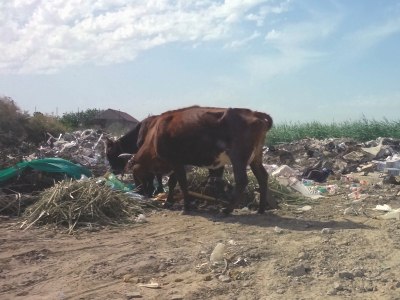Did DIY Butchers Cause Twenty-One Meat Poisonings in Turkmenistan?
A hospital in the eastern Turkmen town of Sayat has admitted 21 people with symptoms of food poisoning, after eating at a restaurant where they were given infected meat. All the patients were kept in hospital for several days, Chronicles of Turkmenistan reports. An outbreak of a disease among camels and cattle, presumably animal pox, was recently recorded in Sayat. The virus began to spread rapidly but has since been halted by epidemiological and veterinary services. The way that dead animals are disposed of in Turkmenistan poses an additional threat. The authorities do not control this process, and many people bury cattle corpses on their own in wastelands or throw them into bushes. Due to this, a new problem has emerged: people, dubbed giçki maslykçylar (“night scavengers”) find recently dead animals, skin them, and cut out the parts of the carcass that have not rotted away. This meat is then sold to cafes and restaurants for 50 manats per kilogram, slightly cheaper than the market price of 60-65 manats for fresh meat. Viral animal pox is spreading among camels and cattle in some countries of Central Asia, including Turkmenistan. The virus causes skin lesions, including papules and pustules, which can lead to mass infections in livestock. If not treated promptly, the disease can spread among farm animals, which can cause mass mortality. In most cases, animal pox does not pose a serious threat to humans, but some strains can be transmitted to people. Diseases such as cowpox and sheeppox can be transmitted to humans through contact with infected animals. These viruses cause skin rashes and can affect mucous membranes, making them potentially dangerous to humans, especially if precautions are not taken when in contact with them. Local authorities have started inspecting stores and markets selling meat and fish. Sellers who sell products without appropriate certificates from sanitary-epidemiological services are being fined 3,000 to 5,000 manats ($850 to $1400).






